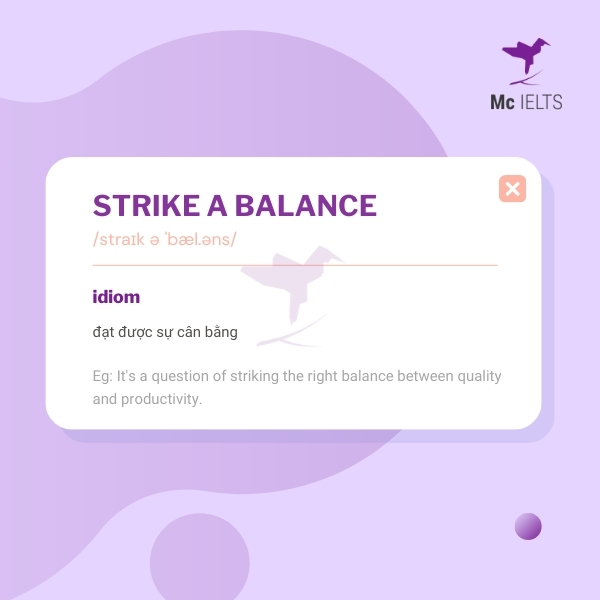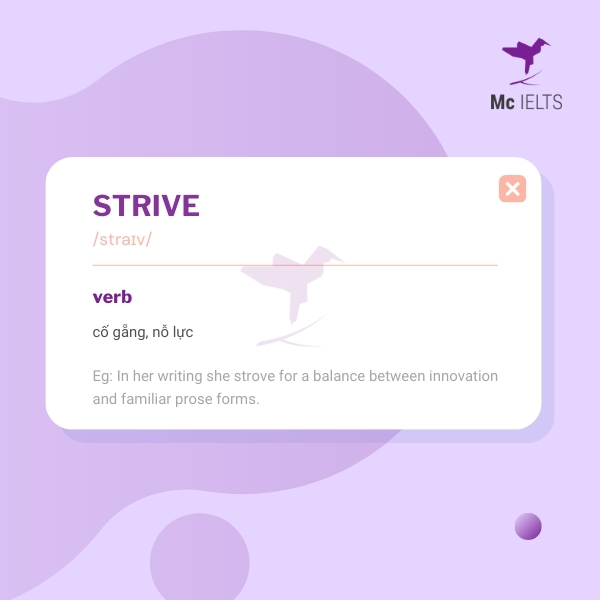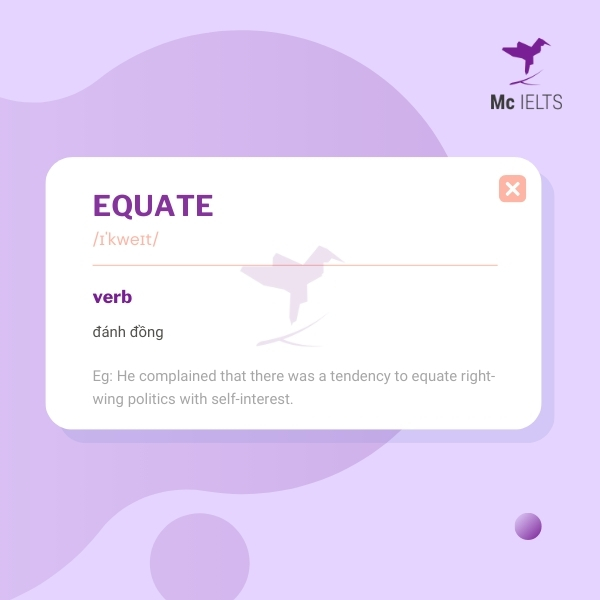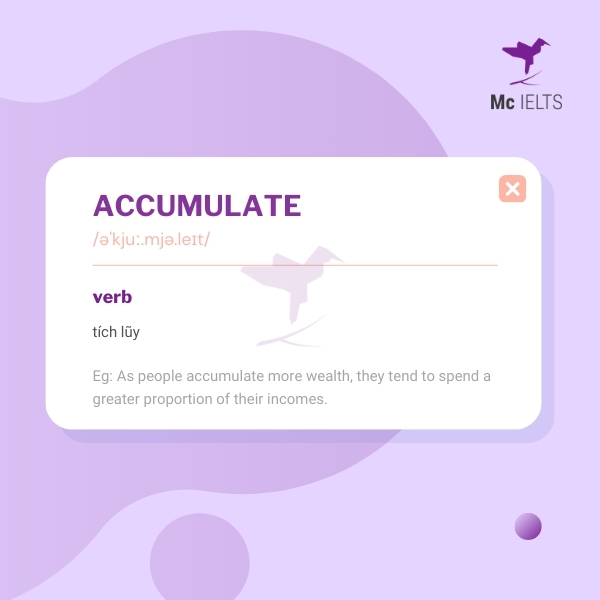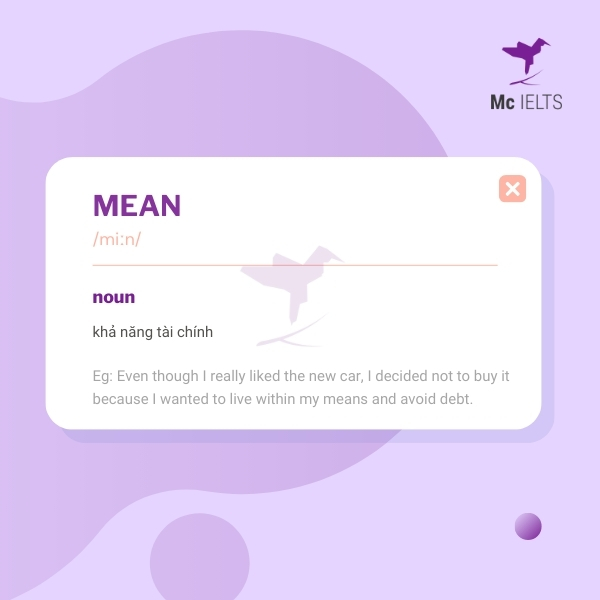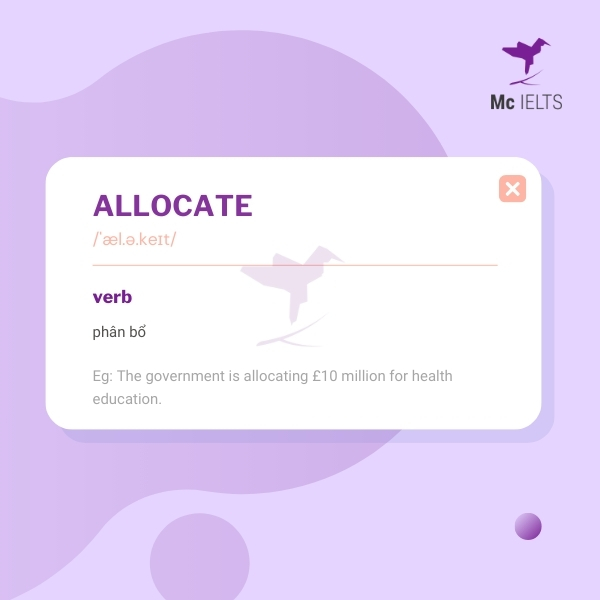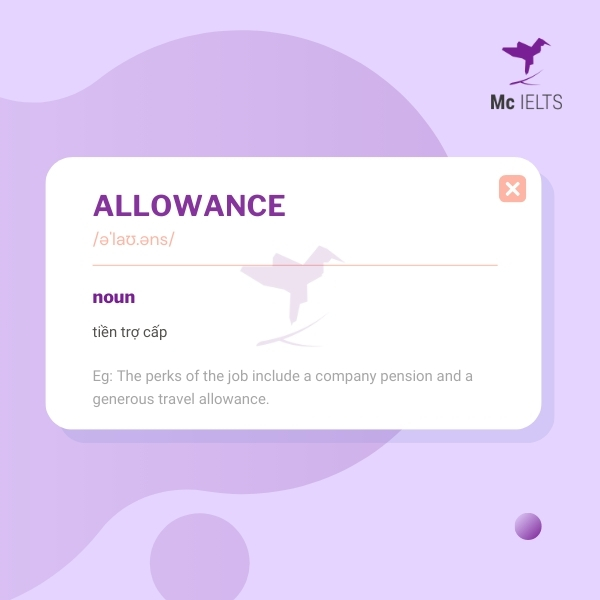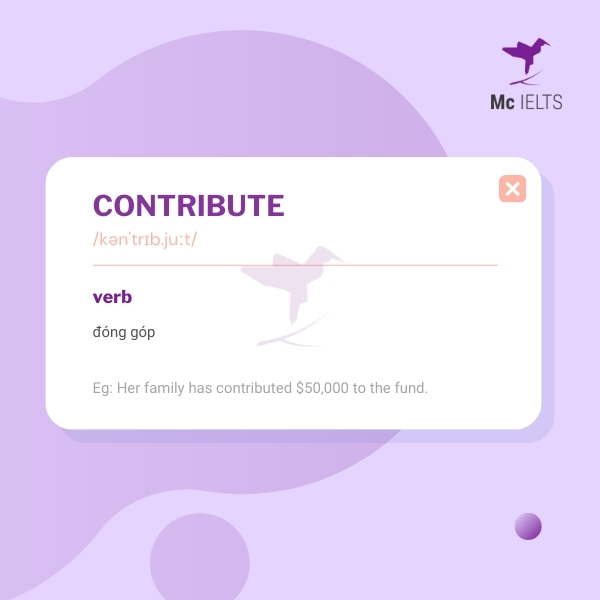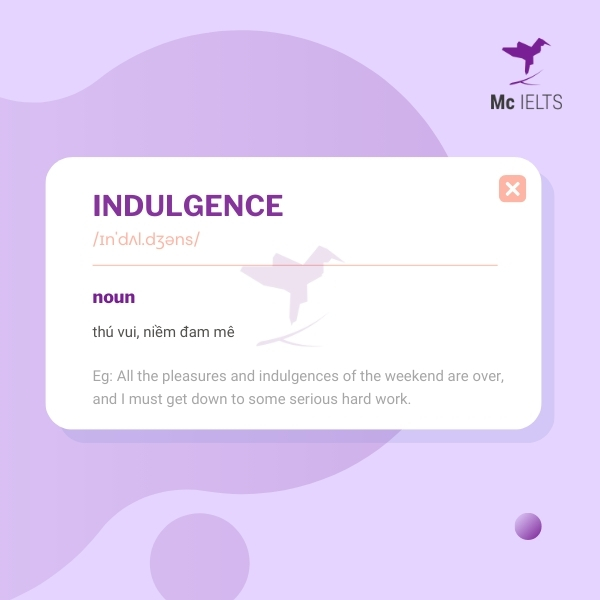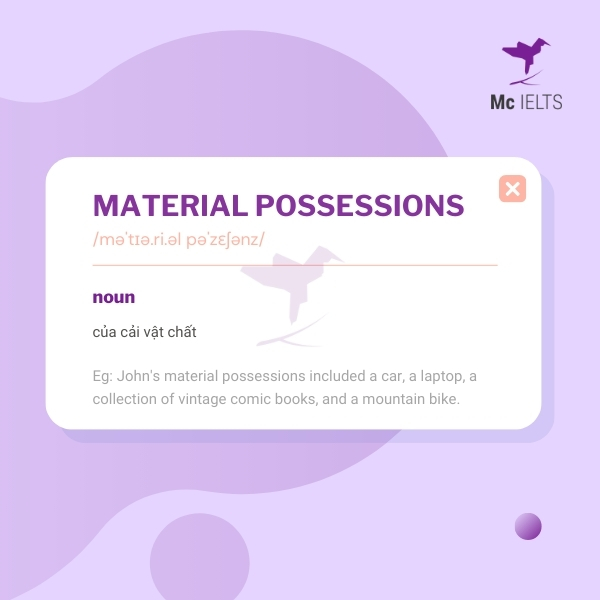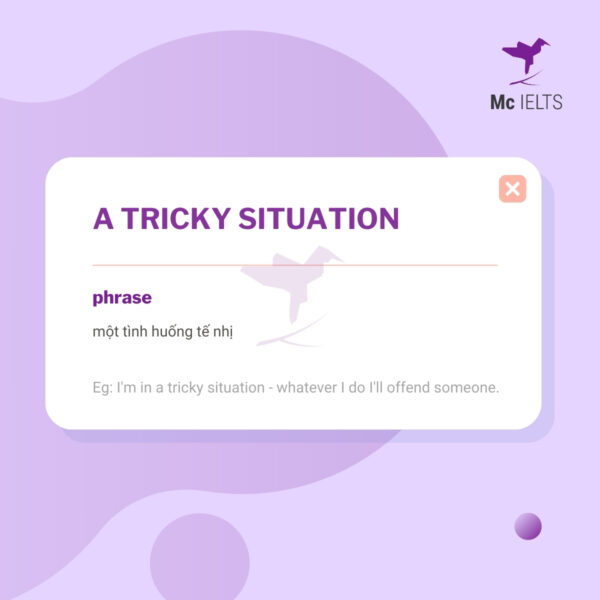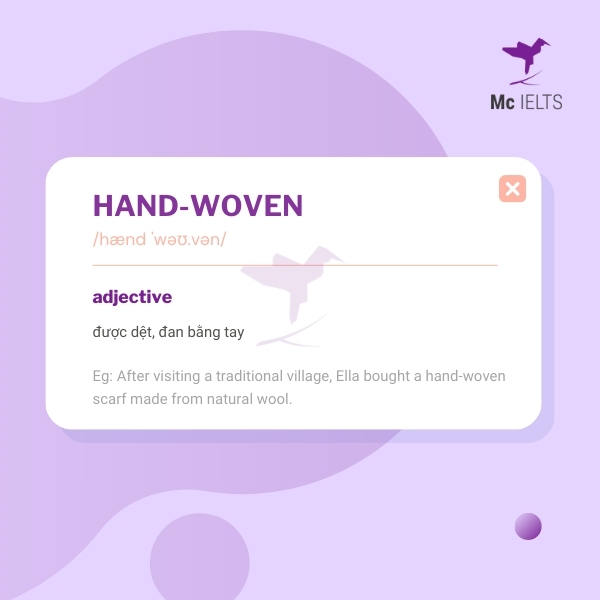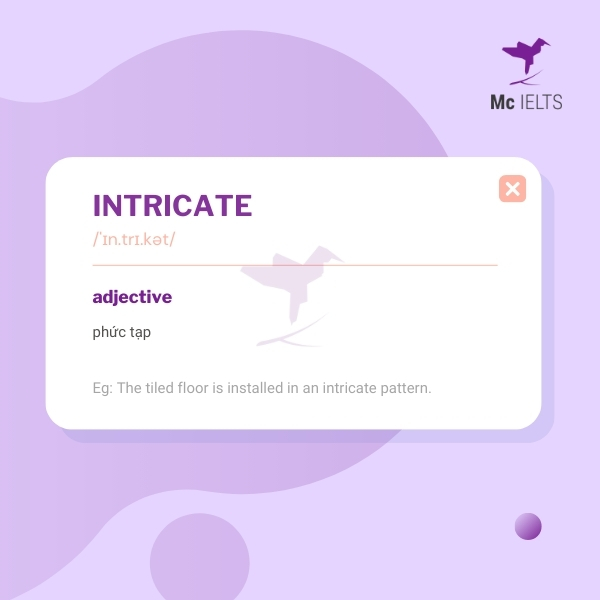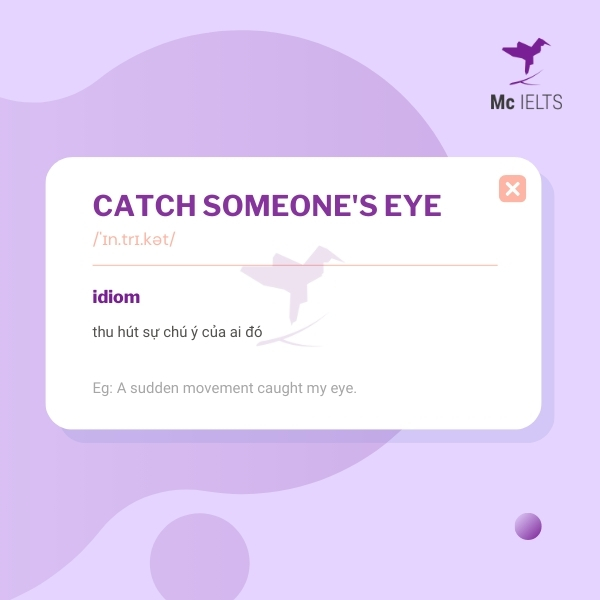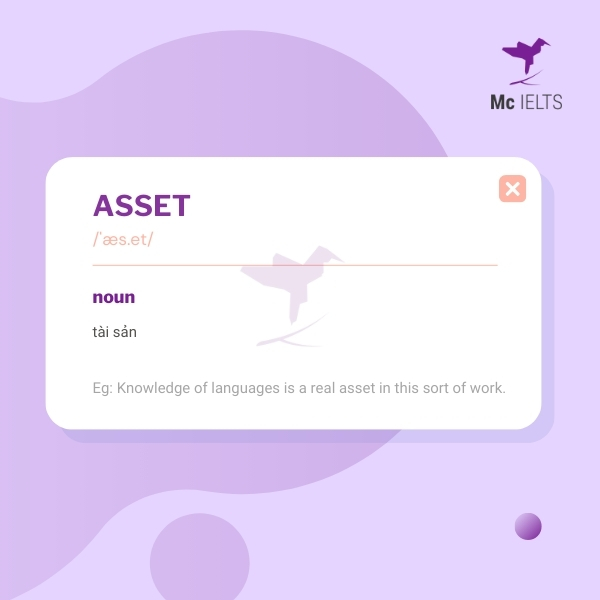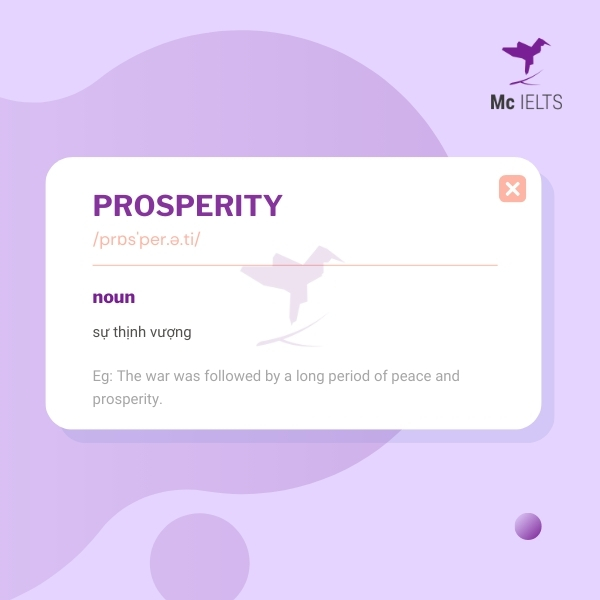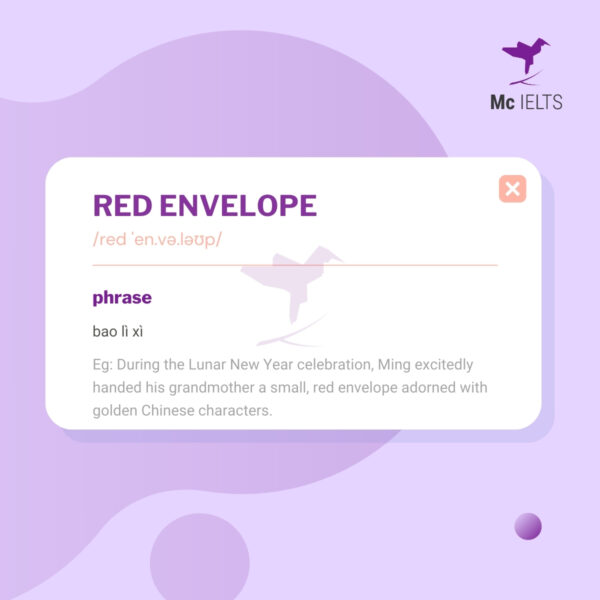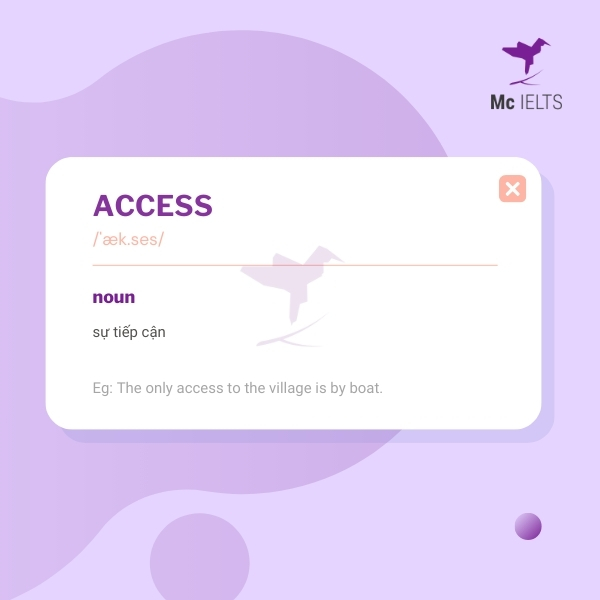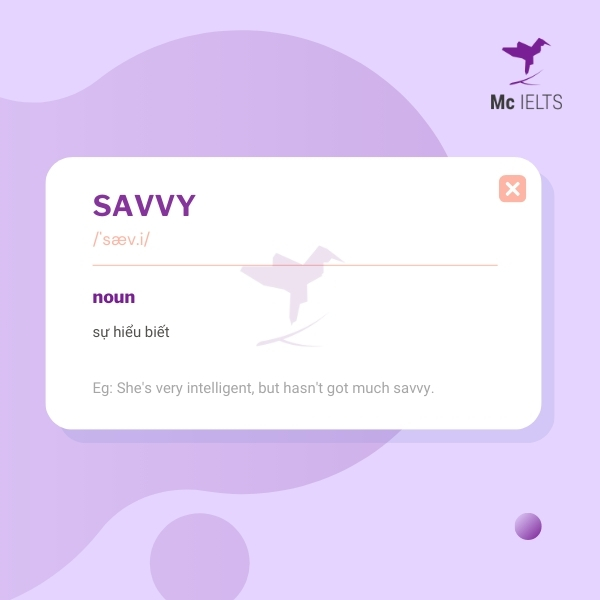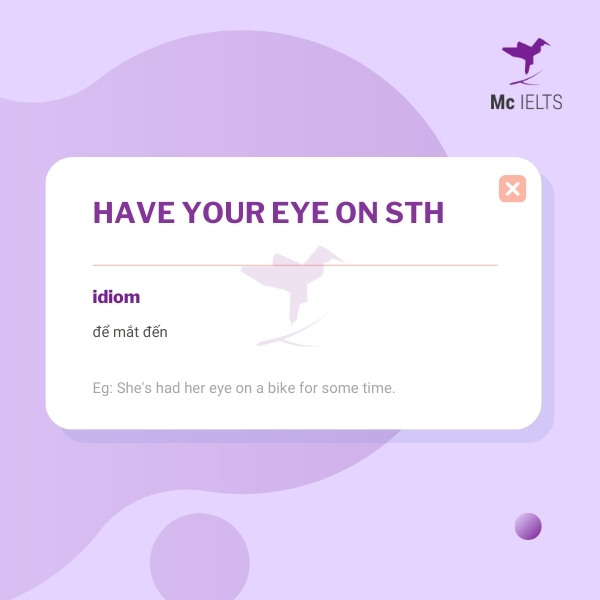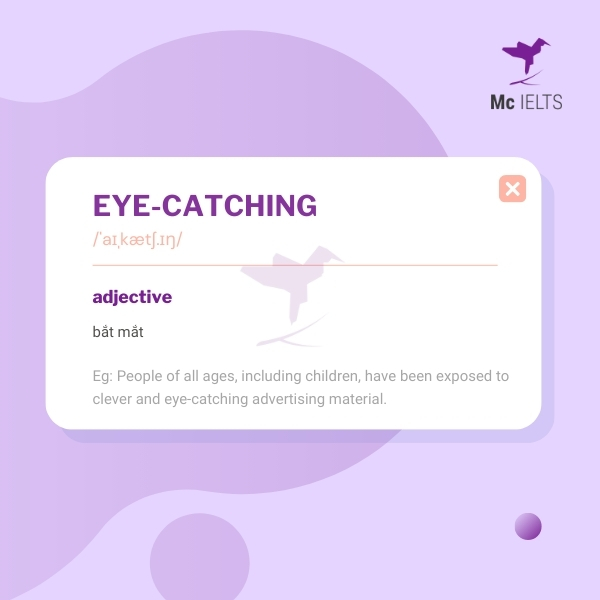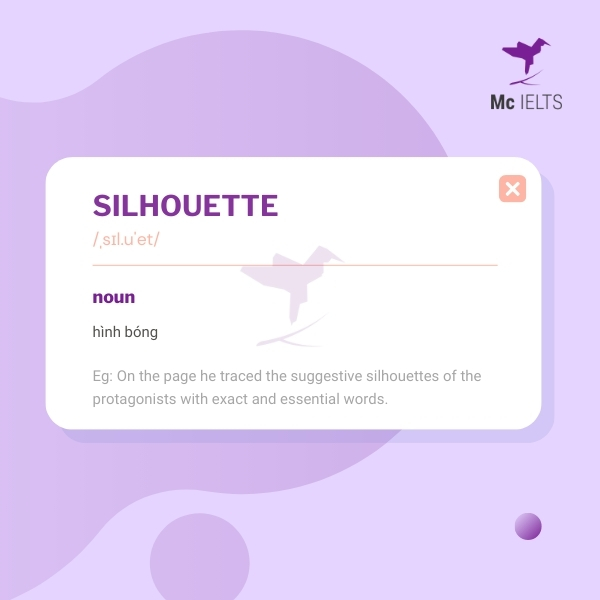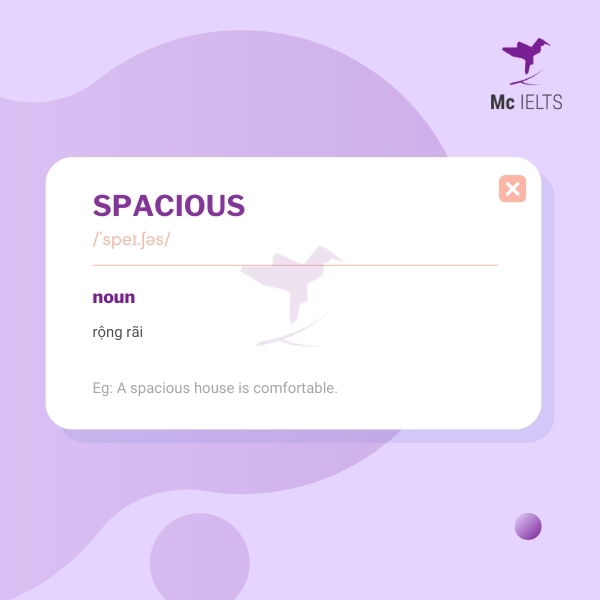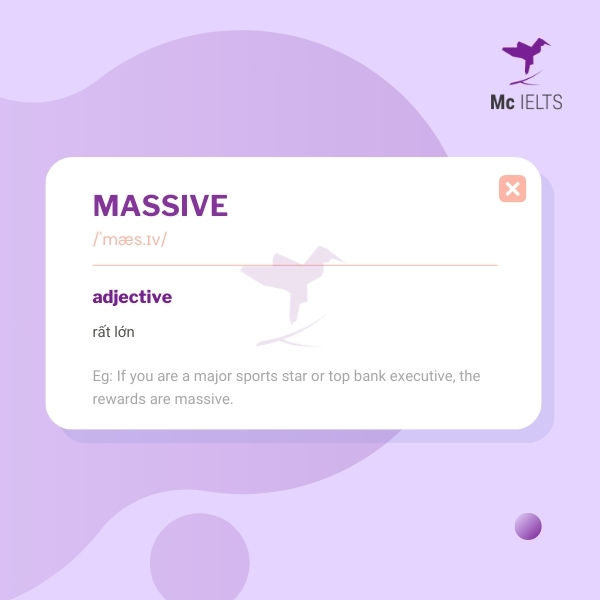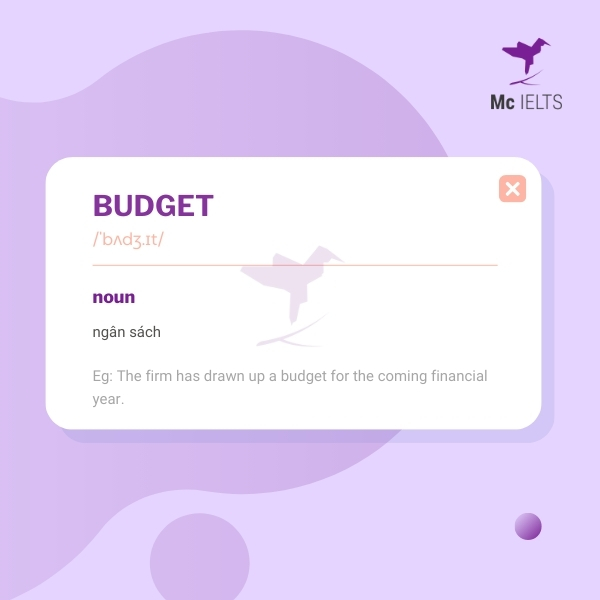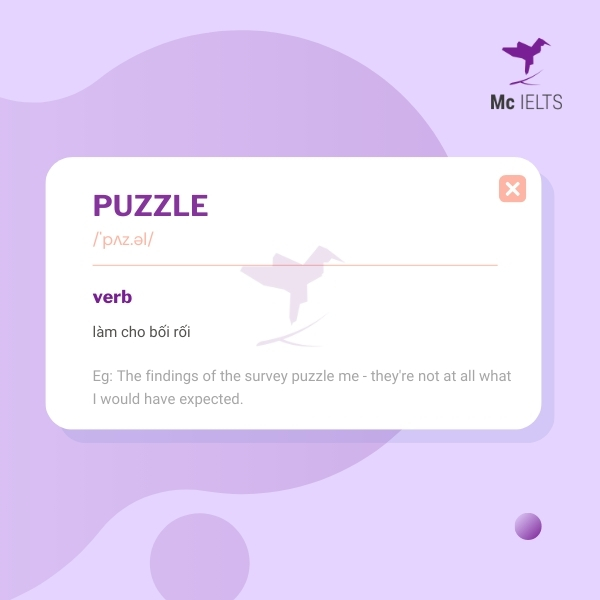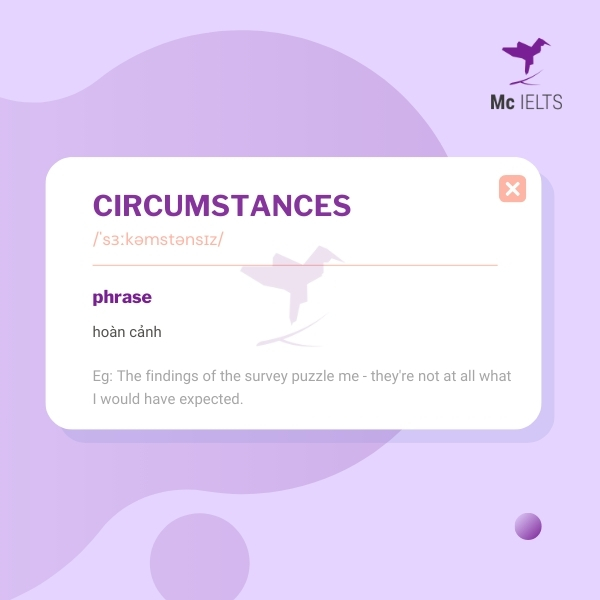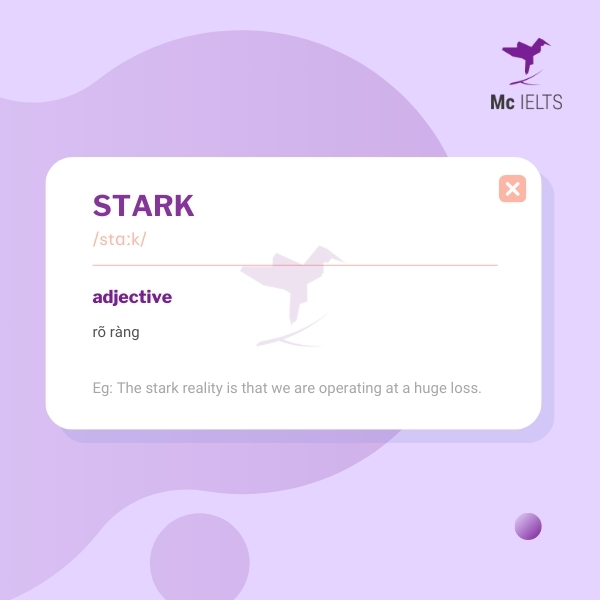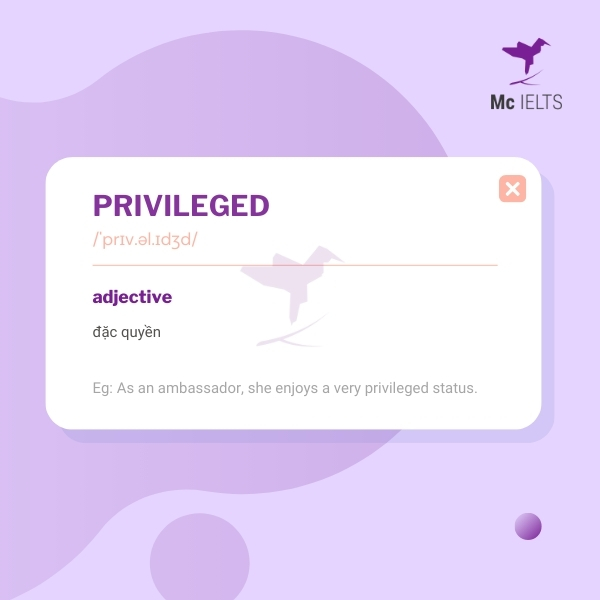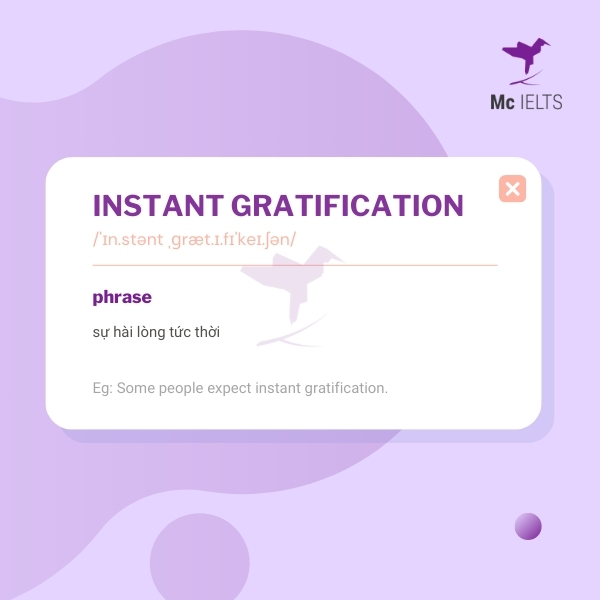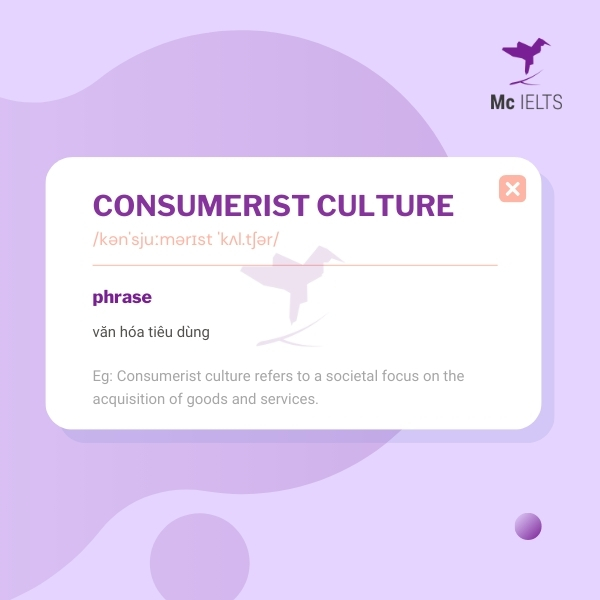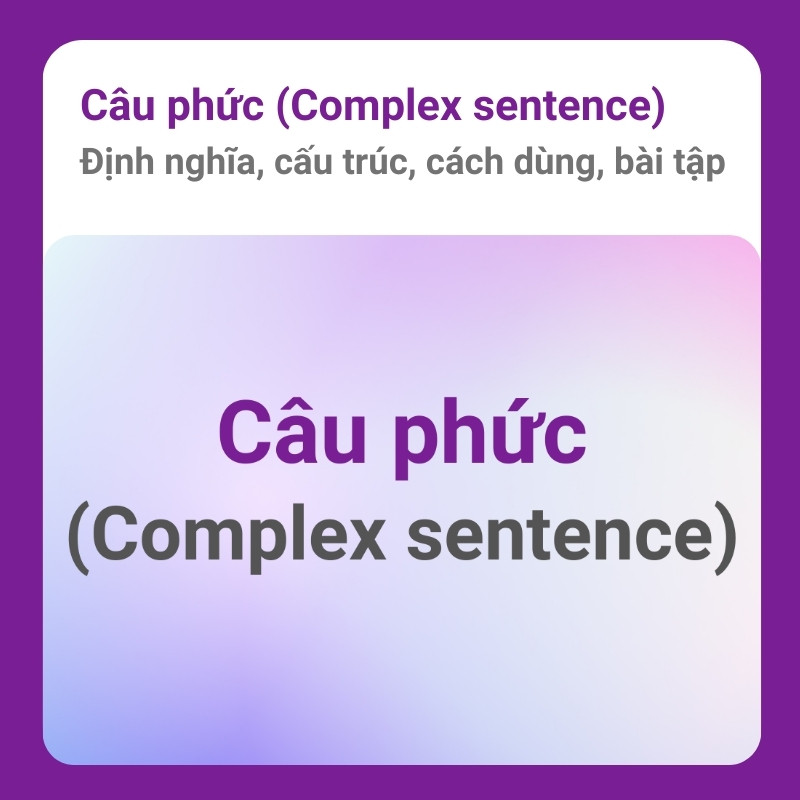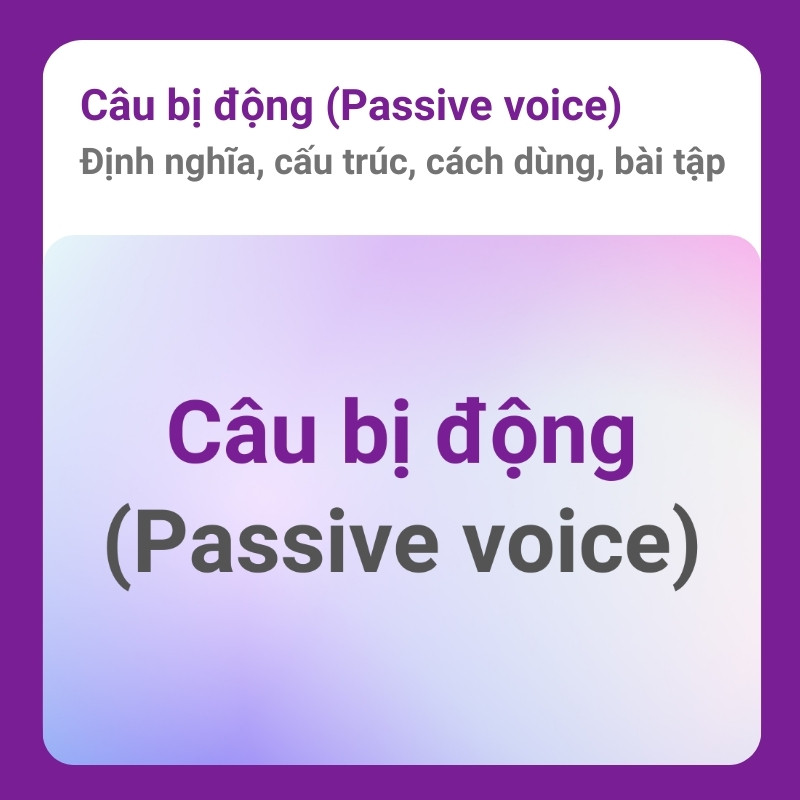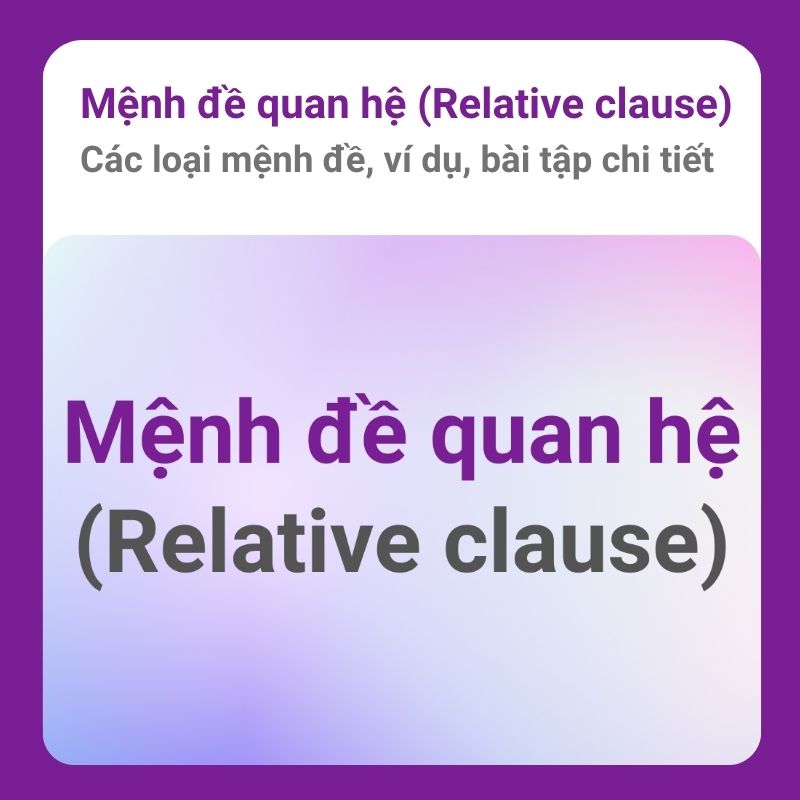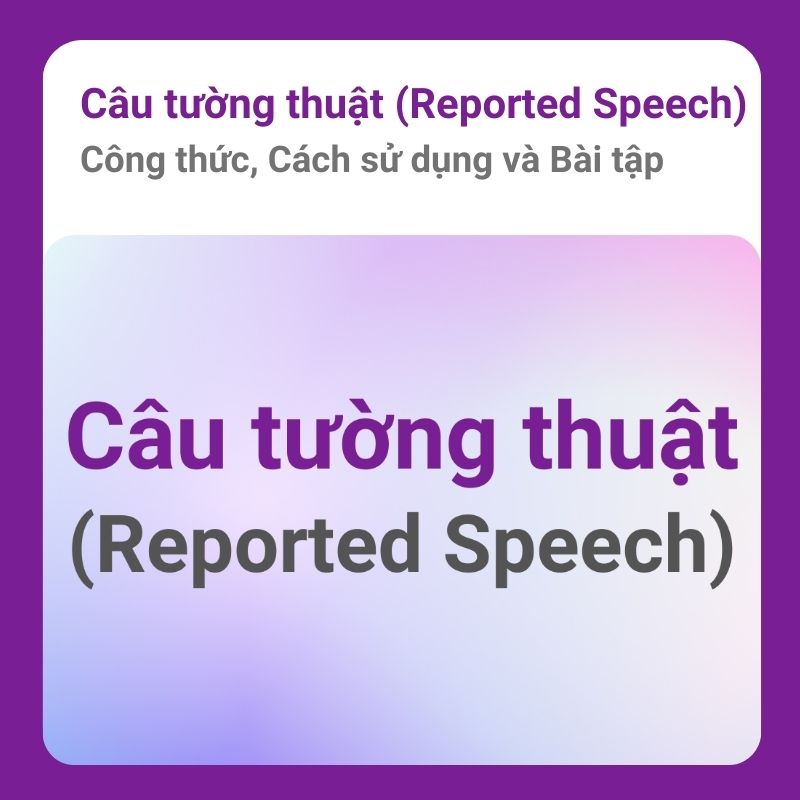Bài mẫu Topic Money IELTS Speaking Part 1, 2, 3 kèm từ vựng
 21/06/2024
21/06/2024
 Tác giả : Mc IELTS
Tác giả : Mc IELTS
“Tiền bạc” được xem là chủ đề hấp dẫn và đa chiều trong bài thi IELTS Speaking. Bởi topic này đòi hỏi bạn phải thể hiện sự hiểu biết sâu rộng và khả năng diễn đạt linh hoạt về việc quản lý tài chính cá nhân và sự tác động của đồng tiền trong xã hội. Trong bài viết này, Trung tâm Anh ngữ Mc IELTS sẽ cung cấp những bài mẫu chỉn chu cho chủ đề Money IELTS Speaking Part 1,2, 3, cùng với danh sách từ vựng phong phú.
| Key takeaway |
Câu hỏi Topic IELTS Money Speaking Part 1:
Câu hỏi Topic Money IELTS Speaking Part 2:
Câu hỏi Topic IELTS Speaking Topic Saving Money Part 3:
|
Bài mẫu topic Money IELTS Speaking Part 1
Trong phần 1 của bài thi IELTS Speaking, chủ đề Money thường xuất hiện với các câu hỏi về thói quen chi tiêu, quản lý tài chính cá nhân và quan điểm về tiền bạc. Do đó, những câu trả lời mạch lạc và sử dụng từ vựng chính xác sẽ giúp bạn tạo ấn tượng tốt với giám khảo. Nội dung dưới đây sẽ cung cấp cho bạn những câu trả lời mẫu chất lượng, giúp người học IELTS tự tin hơn và nâng cao khả năng đạt điểm cao trong phần thi này.

Bài mẫu Money topic IELTS Speaking Part 1
How important is money to you?
Money is undoubtedly crucial to me, as it is for most people. It provides security and allows me to meet my basic needs, pursue my interests, and enjoy a comfortable lifestyle. However, I also believe that money shouldn’t be the sole focus in life. It’s essential to strike a balance between financial well-being and other aspects like relationships, personal growth, and contributing to society.
Từ vựng:
Do you think you will have lots of money in future?
Although I strive for financial stability and aim to achieve my goals, I don’t necessarily equate success with having “lots” of money. I believe in working hard and making smart financial choices, but ultimately, I value experiences, personal growth, and making a positive impact over accumulating excessive wealth.
Từ vựng:
How do you save money?
To be honest, I have a few strategies for saving money. Firstly, I create a monthly budget to track my income and expenses, ensuring I live within my means and allocate a portion of my income towards savings. I also try to minimize unnecessary spending by cooking at home more often, choosing affordable entertainment options, and avoiding impulse purchases.
Từ vựng:
Do your parents give pocket money to you to help with the housework?
As an adult, I’m no longer dependent on pocket money from my parents. However, when I was younger, they did give me a small allowance for completing chores around the house. This taught me the value of money and the importance of contributing to the household.
Từ vựng:
Do you generally spend a lot of money?
I would consider myself a moderate spender. I enjoy occasional indulgences like dining out or traveling, but I’m also mindful of my budget and try to prioritize experiences and investments over material possessions. I believe in spending money on things that bring me joy and value in the long run.
Từ vựng:
Do you think it is ok to lend money to friends or family members?
Actually, lending money to friends or family can be a tricky situation. While it’s natural to want to help loved ones in need, it’s crucial to consider the potential risks involved. In my opinion, it’s generally okay to lend small amounts that you can afford to lose, but larger loans should be approached with caution. It’s important to establish clear terms and expectations to avoid misunderstandings or strained relationships.
Từ vựng:
Have you bought anything interesting recently?
Yes, I recently purchased a beautiful hand-woven silk scarf from a local artisan market. The intricate patterns and vibrant colors caught my eye, and I love the idea of supporting local craftsmanship. It’s a unique piece that adds a touch of elegance to my wardrobe.
Từ vựng:
Would you like to become rich someday?
Although the idea of financial abundance is appealing, my primary focus is on achieving financial security and stability. I believe that true wealth encompasses more than just monetary assets, including good health, meaningful relationships, and personal fulfillment. So, while I strive for a comfortable lifestyle, my ultimate goal is to live a rich and meaningful life, regardless of my net worth.
Từ vựng:
Do people in your country give money as a gift to children?
Yes, giving money as a gift to children is a common practice in Vietnam, especially during special occasions like Lunar New Year or birthdays. It’s often seen as a way to wish them good luck, prosperity, and success in their studies. The amount given varies depending on the relationship and the occasion, but it’s usually presented in a red envelope, which symbolizes good fortune.
Từ vựng:
Do you think financial literacy is at the high level across generations?
I’d say financial literacy in Vietnam is gradually improving, but there’s still a considerable gap across generations. Younger people, who have grown up with greater access to information and financial education programs, tend to be more financially savvy compared to older generations. However, there’s still a need for greater awareness and education to ensure that everyone has the knowledge and skills to make informed financial decisions.
Từ vựng:
Bài mẫu topic Money IELTS Speaking Part 2
Trong phần 2 của bài thi Money topic IELTS Speaking, bạn sẽ được yêu cầu nói chi tiết về một chủ đề liên quan đến tiền bạc, chẳng hạn như mô tả một thứ gì đó bạn muốn mua nhưng lại không có khả năng chi trả. Đây là cơ hội để bạn thể hiện khả năng phát triển ý tưởng và sử dụng từ vựng phong phú. Bài mẫu dưới đây sẽ cung cấp những câu trả lời “ăn điểm”, đồng thời giúp người ôn IELTS học cách triển khai nội dung một cách mạch lạc và hấp dẫn, từ đó ghi điểm cao trong phần thi này.

Bài mẫu Money topic IELTS Speaking Part 2
Question: Describe something you want to buy but can’t afford.
I’ve had my eye on the VinFast VF 8 for a while now. It’s a sleek, all-electric SUV that’s made right here in Vietnam, and it ticks all the boxes for me in terms of style, performance, and eco-friendliness.
The design is modern and eye-catching, with clean lines and a sporty silhouette. The interior is spacious and luxurious, with plenty of legroom and high-tech features like a massive touchscreen display and advanced driver-assistance systems.
But what really excites me about the VF 8 is its electric powertrain. It boasts impressive acceleration and a decent range on a single charge, which would be perfect for my daily commute and weekend getaways. Plus, it’s incredibly quiet and smooth to drive, making every journey a pleasure.
The only catch, of course, is the price tag. It’s a bit out of my budget at the moment, unfortunately. But that doesn’t stop me from dreaming. I’ve been diligently saving up, and I’m hoping that with a bit of luck and some smart financial planning, I might be able to make my dream car a reality in the not-too-distant future.
In the meantime, I’ll just have to admire it from afar, read reviews online, and maybe even take a test drive to get a taste of what could be mine one day.
Từ vựng:
Bài mẫu topic Money IELTS Speaking Part 3
Phần 3 của bài thi Topic Money IELTS Speaking sẽ yêu cầu bạn thảo luận sâu hơn về các khía cạnh phức tạp liên quan đến tiền bạc, chẳng hạn như tác động của tiền bạc lên cuộc sống xã hội hoặc quan điểm về quản lý tài chính cá nhân. Đây là lúc để bạn thể hiện khả năng phân tích và lập luận của mình. Những bài mẫu dưới đây sẽ cung cấp những câu trả lời chi tiết và thuyết phục, từ đó giúp người học IELTS Speaking Online sử dụng từ vựng và cấu trúc câu nâng cao một cách hiệu quả.

Bài mẫu Money topic IELTS Speaking Part 3
How much money is enough?
That’s a question that has puzzled philosophers and everyday people alike for centuries. The answer varies greatly depending on individual circumstances, lifestyle, and aspirations. Here in this city, a comfortable life might be achievable with a monthly income of around 20 million Vietnamese dong, covering basic necessities, housing, and some leisure activities. However, for those seeking a more luxurious lifestyle, significantly more would be required. Ultimately, “enough” money is a subjective concept, and the answer is often found in balancing needs, wants, and financial security.
Từ vựng:
What problems does money cause in your society?
Money, although essential for survival and comfort, can also be a source of significant problems in our society. Income inequality is a pressing issue, with a stark divide between the wealthy elite and the struggling working class. This disparity can lead to social unrest, resentment, and a lack of opportunities for those born into less privileged circumstances. Also, the pursuit of wealth can sometimes foster unethical behavior, corruption, and materialism.
Từ vựng:
Do young people nowadays believe in saving money?
The attitude of young people towards saving money in Vietnam is quite diverse. While some are financially savvy and prioritize saving for the future, others are more inclined towards instant gratification, spending on experiences and material possessions. The rising cost of living in cities like Hanoi, coupled with the influence of consumerist culture, can make saving a challenge. However, with increasing financial education and awareness, more young people are recognizing the importance of saving for long-term goals like homeownership and retirement.
Từ vựng:
Chủ đề Money IELTS Speaking không chỉ là cơ hội để bạn thể hiện khả năng ngôn ngữ, mà còn là dịp để bạn chứng tỏ sự hiểu biết sâu rộng về tài chính và xã hội. Với những bài mẫu và từ vựng phong phú trong bài viết này, hy vọng bạn đã cảm thấy tự tin hơn khi đối diện với giám khảo. Hãy luyện tập thường xuyên và áp dụng những kỹ năng đã học để đạt điểm cao nhất. Nếu bạn đang thắc mắc học IELTS ở đâu tốt Sài Gòn để tối ưu hóa quá trình luyện IELTS Speaking và chuẩn bị tốt nhất cho kỳ thi IELTS, hãy tham gia các khóa học tại Mc IELTS. Với đội ngũ giảng viên là các cựu giám khảo chấm thi IELTS và chương trình học tập tiên tiến, Mc IELTS sẽ giúp bạn đạt được mục tiêu của mình. ĐĂNG KÝ NGAY hôm nay để nhận được sự hỗ trợ tốt nhất!
Nhận lộ trình IELTS TỐI ƯU theo yêu cầu





